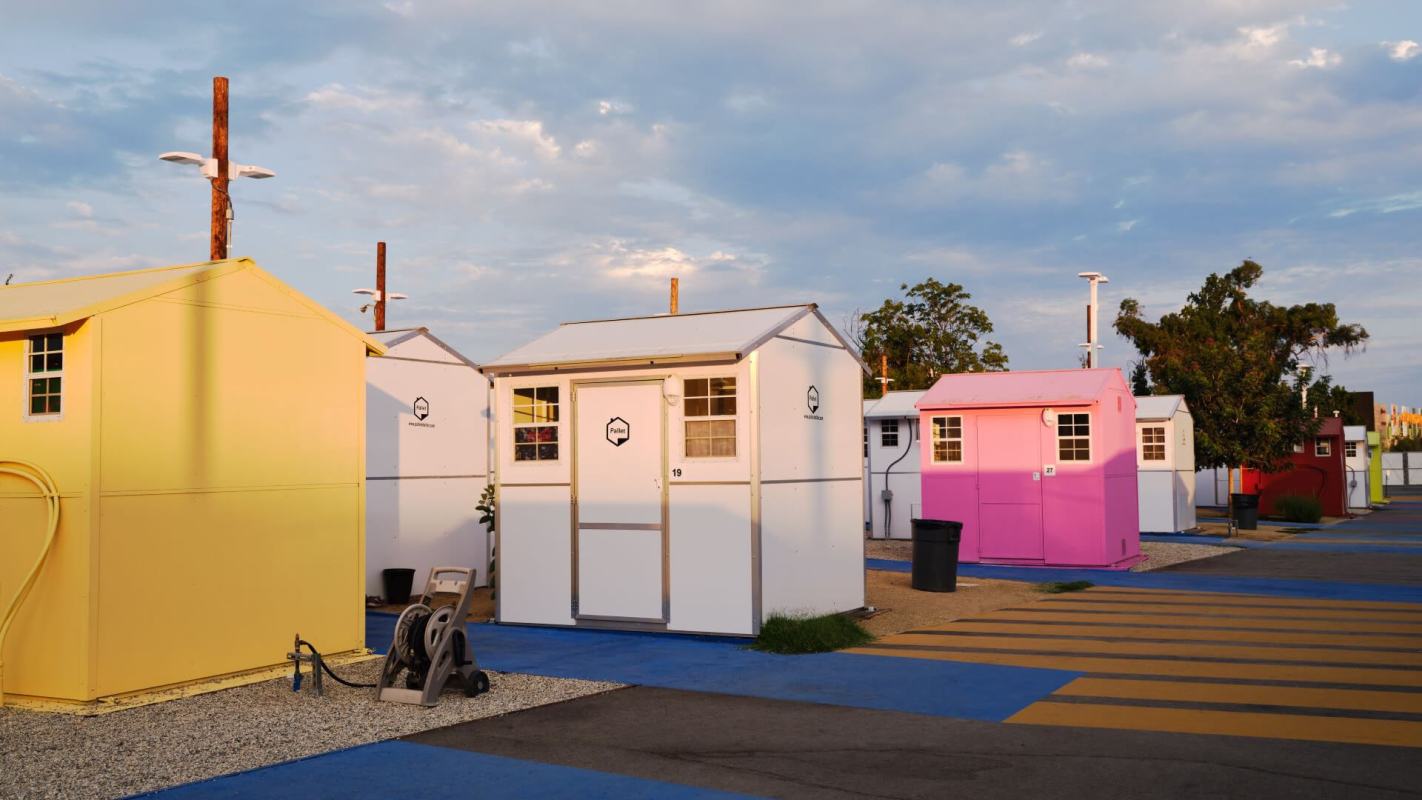Homelessness is a major systemic problem in the United States, and our overheating planet is only putting vulnerable people like those experiencing homelessness more at risk.
Pallet has developed shelters that are inexpensive, safe, and can be set up in less than an hour. A safe place to sleep is essential for all people, whether victims of natural disasters or families on their path to permanent housing.
Pallet shelters
Pallet aims to be a "leader in rapid-response shelter villages that combine the dignity of personal space with the healing of community."
By employing people who have experienced homelessness, Pallet is able to create temporary shelters informed by real experiences.
The importance of access to private, safe spaces cannot be overstated, which is why Pallet makes sure each shelter comes with locks and each village has on-site resources. The company strives to create sustainable paths toward permanent housing.
Pallet claims that each unit of shelter can be assembled in less than a day with most taking less than an hour.
The company produces one to four bed personal shelters, service offices, bathrooms, and large community rooms. These structures can be built more cheaply than permanent housing because Pallet uses lightweight and inexpensive materials that don't compromise on strength.
Rated for 110 mph winds, standard snow loads, and earthquake resistance, these temporary shelters can handle most conditions. Units are also inspected by local fire marshals and come with fire extinguishers, smoke and carbon monoxide detectors, and emergency exits.
The smallest model, Shelter 64, can fit one to two beds, has a locking door, and offers options for air conditioning, heating, and internal power. Pallet states that these portable structures can also be used as disaster housing or as workforce shelters.
Building a livable shelter is only half the battle, however. With on-site social services, food, showers, laundry, and job assistance provided in each Pallet village, persistent barriers to permanent housing can be addressed. In the communities that are built with Pallet shelters, partners can stay together, pets and possessions can be kept safe, and residents can work towards long-term, personalized solutions.
As of writing this article, Pallet has helped over 4,000 people by creating 63 shelter villages. One such village, named "Casitas de Esperanza" is solar-powered and holds 25 shelters in San Jose. Villages can be funded through multiple sources and will be tailored to the needs of the people in the area.
Homelessness and climate
In January 2020, more than half a million people experienced homelessness in the U.S.
Unsheltered people — those not living in a homeless shelter or temporary housing — are particularly at risk for illness and injury due to exposure to the elements and a lack of protection.
These dangers are made even worse by shifting climates, more severe weather events, and environmental pollution.
Marginalized groups have higher risks of becoming homeless and are often more acutely affected by the changing climate.
In order to protect our most vulnerable neighbors, housing and support must be made accessible to those experiencing homelessness all over the country.
Pallet is doing essential work in this space — and the results speak for themselves.
The Safe Outdoor Space in Aurora, Colorado opened in July 2021 with people initially staying in tents before Pallet shelters were installed in November.
Since the site was opened, it has successfully housed 101 people with 54% of those residents obtaining employment or employment services. An additional 11 people were able to move into permanent housing, and a total of seven families were reunited, Pallet reported.
Follow The Cool Down on Instagram and subscribe to our newsletter.








